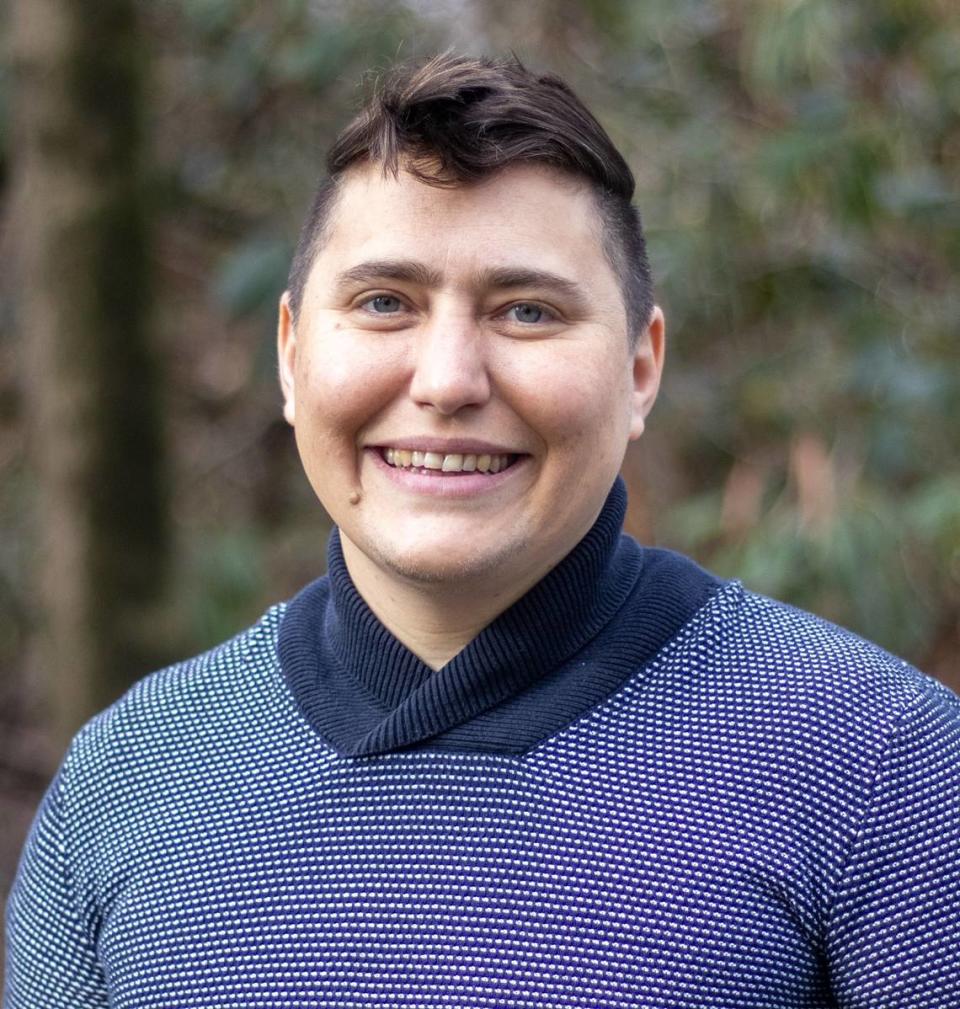NC student rabbi: I saw bombs hit Gaza last month. The reverberations I felt strengthen my resolve. | Opinion
Editor’s note: This N.C. writer was among 30 rabbis and peace activists stopped April 26 while trying to deliver food aid to Gaza.
I recently traveled to Gaza with Rabbis for Ceasefire. We joined with a small group of Israeli rabbis and peace activists in an attempt to deliver food aid to the Palestinian people starving in Gaza.
We flew to Tel Aviv, then drove a truck filled with half a ton of rice and flour towards the Erez crossing — one of the northern crossings into Gaza which the government has refused to open to humanitarian aid. We were there to demand that the Israeli government open the crossing and stop starving people in Gaza. Our rally coincided with Passover, the Jewish holiday that commemorates the Exodus from oppression.

Police stopped our caravan less than a mile from the crossing, and we continued on foot. Access to food is a sacred right, so we sang and prayed as we carried bags of rice on our shoulders, attempting to move forward. As we got within view of the roofs of the checkpoint buildings, police blocked our entry — arresting some of us and shoving the rest of us back down the road. When we sat down in protest they lifted us up from the ground again and again.
Six months into an ongoing genocide that has taken the lives of more than 34,000 Palestinian people, this pilgrimage was the only way I could imagine honoring Passover. Some of the bombs the Israeli government drops on Gaza are funded by our U.S. tax dollars. In March, the U.S. suspended funding for the United Nations Relief and Works Agency for Palestine Refugees (UNRWA), the international aid agency best positioned to get humanitarian aid into Gaza.
If I simply sat at my seder table while Palestinian children died from a manufactured famine, I would be complicit in oppression. In a crisis this great, — that has U.S. government support for devastating Israeli government actions, — as a spiritual leader, I have a sacred obligation to act.
All of us have a sacred obligation to do whatever we can to save lives. In Jewish tradition, pikuach nefesh — our obligation to save a life — is one of the most holy commandments.
As I waited for hours outside the police station for my fellow rabbis to be released, I heard a dozen bombs land in Gaza. I felt the vibrations reverberate through my body. Later, I learned that the daughter and granddaughter of Palestinian poet Refaat Alareer were among those killed by the bombs I heard that day.
Just weeks before his own death this December Alareer shared a poem he wrote for his daughter. “If I must die / you must live / to tell my story … If I must die / let it bring hope / let it be a tale.”
There are no words to describe the feeling of knowing that a bomb killed people just miles from where I sat. There are no words for feeling its rumble and understanding that it could have wiped out an entire family bloodline — or knowing that my own tax dollars helped fund that bomb. I had no more prayers that afternoon.
My experience that day made this 100% clear: the humanitarian aid that our group sought to bring into Gaza is essential, and yet is not enough. The bombing must stop. Life for Palestinian people is impossible without a lasting ceasefire now, an end to U.S. military funding to the Israeli military, and lifting of the 17-year siege of Gaza.
I sought to bring aid to Gaza as solidarity encampments rose on more than 40 U.S. college campuses. So many people around the world are rising up to demand action from our governments to stop this crisis. May we all continue to do whatever we can for a lasting ceasefire now, the release of all hostages and the full exchange of prisoners, and freedom for the people of Palestine.
Noah Rubin-Blose is a rabbinical student at Reconstructionist Rabbinical College . He lives in Durham, N.C.

